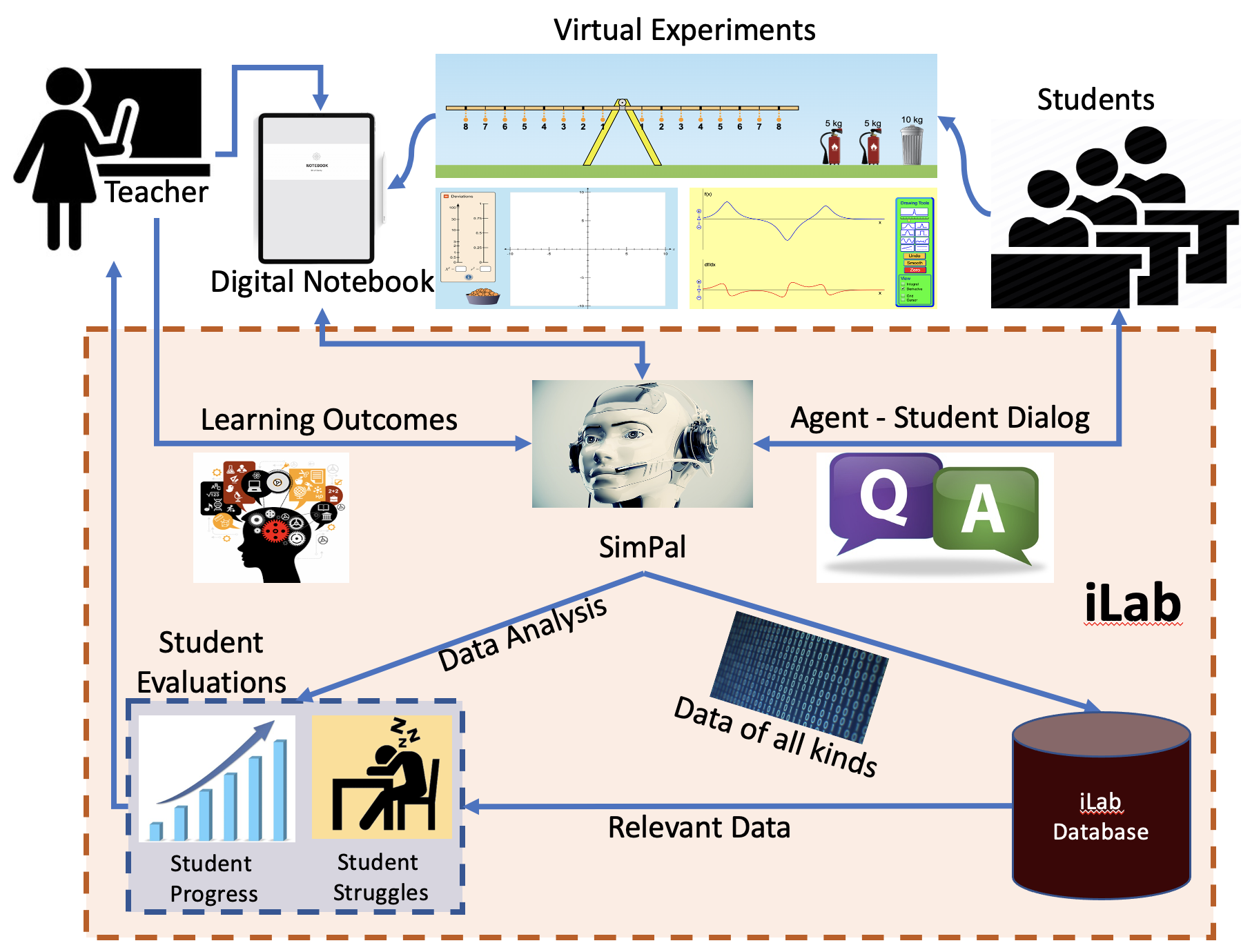Knowledge Grounding via Meta-Conversation
Published:
This is an ongoing project in my lab, where we are developing a “Meta-Conversation Framework” to create dialog-based interactive laboratory experiences for middle school science students and teachers in the context of simulation-based science experiments.

Overview of Project “Knowledge Grounding via Meta-Conversation”
In open-domain dialog systems, it is often uncertain how the end user would expect a new conversation to be grounded and structured. Therefore, the ideal solution must engage in a pre-conversation with the user about their expectations and preferred knowledge base for grounding purposes before the actual conversation happens. In other words, a “Conversation about Conversation”, i.e., a “Meta-Conversation” should happen with the user beforehand.
Based on this idea, we are currently developing an Artificial Intelligence-based Conversational Framework to create dialog-based interactive laboratory experiences for middle school science students and teachers in the context of simulation-based science experiments. A key component of the framework is an intelligent conversational agent (SimPal) that actively learns from teachers through a “Meta-Conversation” to solicit their instructional goals associated with simulation experiments and store them using a computational representation. In other words, the school teacher actively teaches the machine/agent what the instructional goals are for a particular scientific experiment in plain natural language. The agent then uses this representation to facilitate and customize an interactive knowledge-grounded conversation (powered by state-of-the-art Large Language Models) with students as they run experiments to enhance their learning experience. Unlike existing intelligent tutoring systems and pedagogical conversational agents, SimPal can work with any off-the-shelf third-party simulations, a unique feature of this project enabled by our proposed Meta-Conversation technique.
